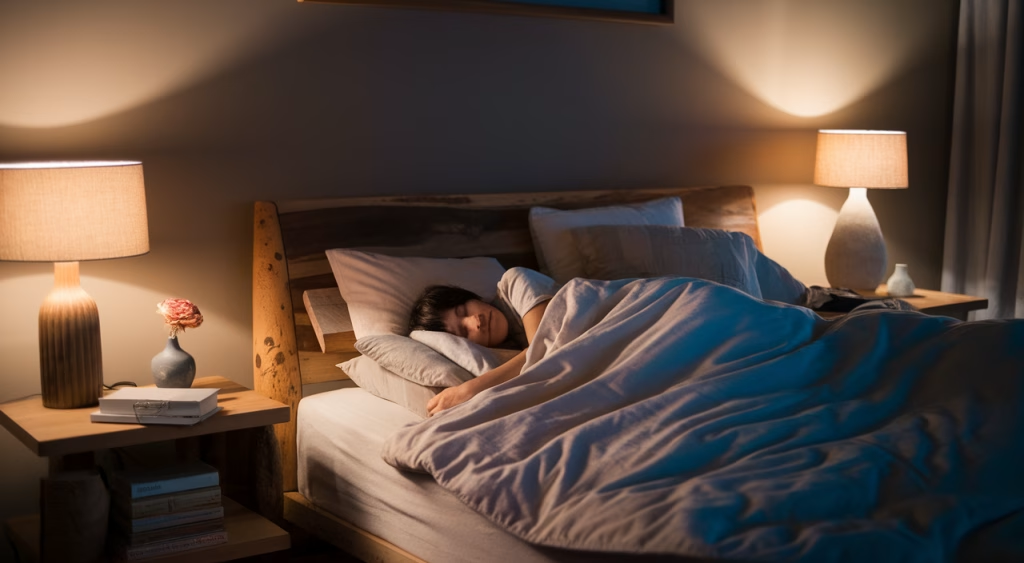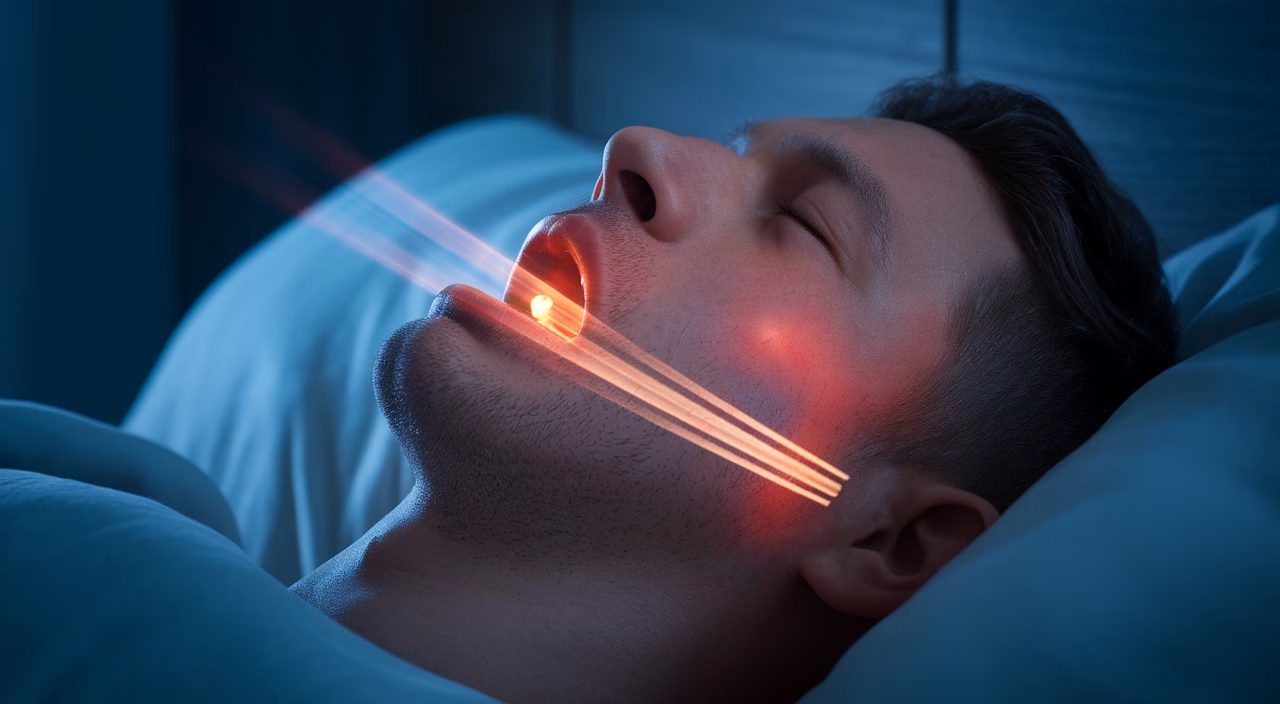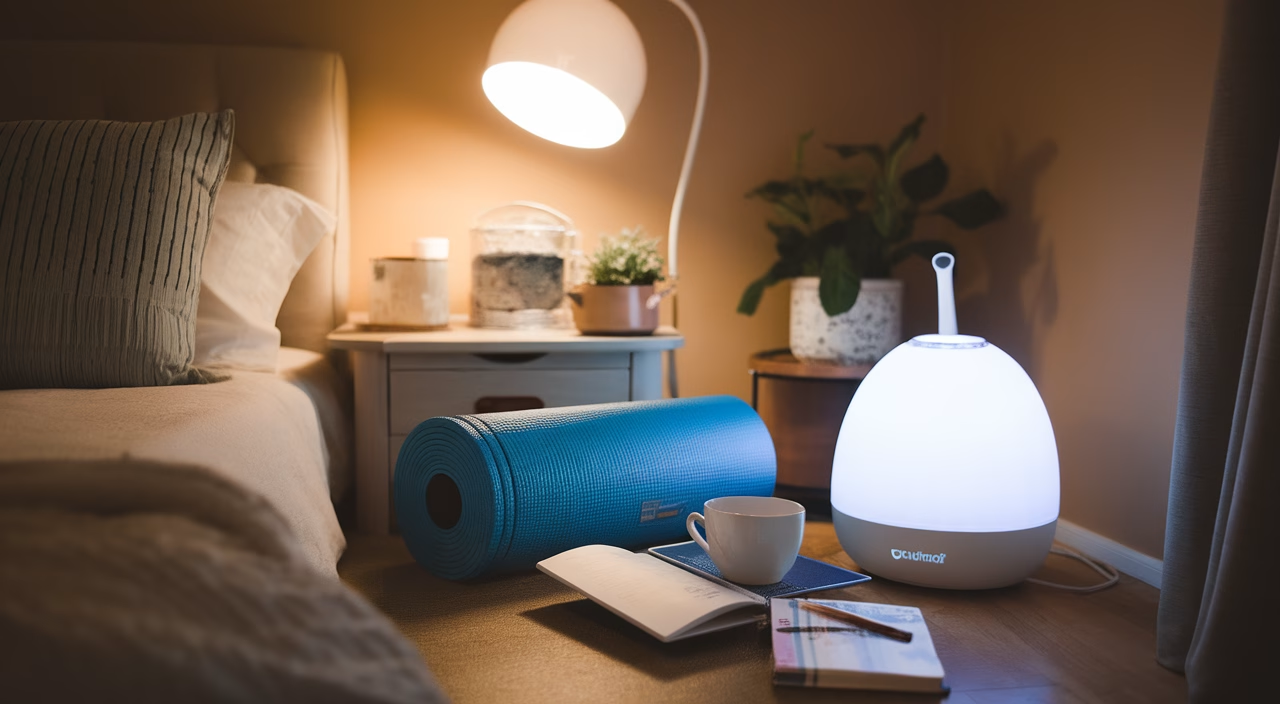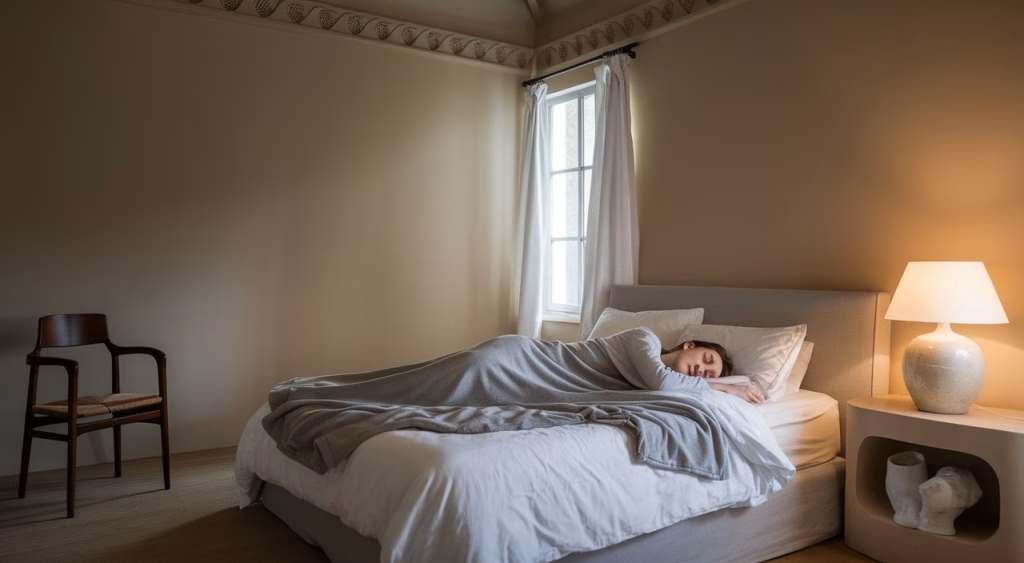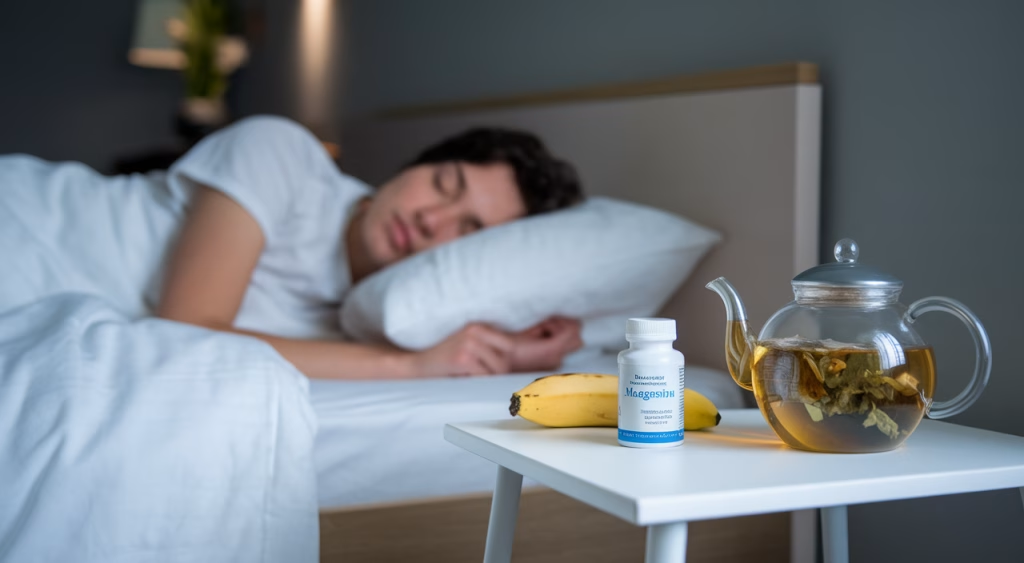Why Is Snoring More Than Just a Nuisance?
Snoring may seem harmless — something we laugh off or poke fun at. But beneath the noisy surface, there can be serious health consequences. Chronic snorers often find themselves in a vicious cycle of sleep deprivation, unknowingly trapped in patterns of disturbed breathing known as obstructive sleep apnea. Left untreated, snoring and sleep deprivation can take a significant toll on your mental, physical, and emotional well-being.
TL;DR Summary
- Snoring isn’t just disruptive; it can signal more serious conditions like obstructive sleep apnea (OSA).
- Sleep deprivation effects include fatigue, mood swings, memory loss, and increased risk of chronic diseases.
- Undiagnosed sleep apnea symptoms often go unnoticed — from gasping at night to morning headaches.
- Natural snoring remedies like nasal rinses, positional therapy, and lifestyle shifts can greatly reduce symptoms.
- You can improve sleep quality without medication through simple yet powerful behavioral changes.
- This guide explores snoring and sleep deprivation with real-world stories and research-backed strategies.
Understanding Snoring and Sleep Apnea
What Causes Snoring?
Snoring occurs when airflow is partially blocked as it moves through the nose and throat during sleep. This makes the surrounding tissues vibrate, producing that familiar rumble or buzz. Understanding what triggers your snoring and sleep deprivation is the first step toward finding relief.
Several factors might be causing your nighttime noise:
- Throat muscle relaxation during deep sleep causes airway narrowing
- Nasal congestion or sinus issues obstruct natural airflow patterns
- Excess weight, especially around the neck, creates pressure on your airway
- Alcohol or sedatives overly relax muscles and worsen snoring intensity
- Sleeping on your back allows the tongue to collapse backward into your throat
What does this mean for you? If you often wake up tired, irritable, or hear complaints from a partner, what sounds like “just snoring” could actually be your body signaling a deeper sleep disorder.
The Link Between Snoring and Sleep Apnea
Here’s where things get serious. While many people simply make noise while sleeping, others experience complete breathing interruptions — sometimes hundreds of times per night. This condition, called obstructive sleep apnea, is critically underdiagnosed and far more dangerous than simple snoring.
Sleep apnea symptoms often overlap with regular snoring patterns: loud snores, excessive daytime drowsiness, and gasping for air during sleep are the most apparent warning signs. However, less obvious indicators include:
- Persistent morning headaches
- Unexplained irritability or mood swings
- Difficulty concentrating during work or daily activities
- Elevated blood pressure readings
If these symptoms feel familiar, it’s time to dig deeper. Obstructive sleep apnea literally robs your brain and vital organs of oxygen — night after night. This chronic oxygen deprivation triggers long-term health damage that many people don’t realize until significant problems develop.
Effects of Sleep Deprivation
Risks Associated with Sleep Apnea
Sleep deprivation is like walking through life with foggy glasses — your body feels exhausted, your mood stays unpredictable, and your health quietly deteriorates in the background. The sleep deprivation effects from untreated sleep disorders compound over time.
Sleep apnea symptoms and related sleep disruption increase your risk for:
- Cardiovascular disease and heart attacks
- Stroke and blood clot formation
- Chronic high blood pressure
- Type 2 diabetes development
- Cognitive decline and memory problems
Quality sleep isn’t optional — it’s as vital as proper nutrition and regular exercise. Your immune system, memory consolidation, and hormonal balance all depend on consistent, restorative sleep cycles. When snoring and sleep deprivation persist, the cumulative toll on your overall health becomes unavoidable.
How Snoring Impacts Sleep Quality
Your brain cycles through different stages of sleep every night, progressing from light rest through deep and REM sleep phases. These stages must flow smoothly for proper physical and mental recovery. But chronic snoring, especially when severe, fragments these crucial sleep cycles.
Think of healthy sleep like a symphony — each phase playing its part in perfect harmony. Snoring acts like sudden, jarring interruptions in the middle of a peaceful lullaby, repeatedly jolting you back toward wakefulness before your body can complete its restorative work. Over time, this pattern leads to serious sleep deprivation effects including anxiety, poor work performance, and unexplained weight gain.
Solutions for Improved Sleep
Natural Remedies to Reduce Snoring
If prescription medications or medical devices aren’t your preferred approach, there are proven snoring remedies you can implement starting tonight. These natural solutions focus on addressing the root causes of breathing disruption without creating dependency on pharmaceutical interventions.
| Natural Remedy | How It Helps Your Sleep |
|---|---|
| Positional Therapy | Side sleeping reduces airway collapse and tongue obstruction |
| Saline nasal irrigation | Dramatically improves airflow by clearing blocked nasal passages |
| Essential oils (eucalyptus, peppermint) | Naturally opens nasal passages and reduces inflammation |
| Strategic weight management | Reduces excess soft tissue pressure around the throat area |
| Bedroom humidifier usage | Moist air soothes irritated airways and minimizes snoring noise |
One of our patients, a teacher struggling with severe snoring and sleep deprivation, started using a wedge pillow and eliminated alcohol consumption two hours before bedtime. Within just ten days, his partner noticed a dramatic reduction in nighttime noise — and he began waking up genuinely refreshed for the first time in years.
Lifestyle Changes for Better Sleep
If your sleep disorder isn’t severe or you’re specifically seeking to improve sleep quality without medication, consistent lifestyle modifications can produce remarkable results. These snoring remedies work by optimizing your body’s natural sleep mechanisms.
- Establish a consistent bedtime routine: Maintain the same sleep-wake schedule every day — including weekends.
- Eliminate evening screen exposure: Blue light from phones and televisions disrupts your natural melatonin production cycle.
- Limit stimulants strategically: Avoid caffeine, smoking, or heavy meals within three hours of bedtime.
- Optimize your sleep environment: Dark, cool, and quiet bedrooms signal your brain that it’s time for deep rest.
- Incorporate daily physical activity: Regular movement helps regulate the hormones essential for quality sleep.
Ever wonder why you still feel completely exhausted after getting eight hours in bed? When it comes to addressing sleep deprivation effects, quality matters far more than quantity. Truly restorative sleep heals and rejuvenates your entire system — while interrupted, fragmented sleep only frustrates your body’s recovery processes.
Cost Guide: Treating Snoring or Sleep Apnea
| Treatment Option | Cost Range | What’s Included |
|---|---|---|
| Natural Remedies | $0–$50 | Positional pillows, nasal rinses, humidifiers |
| Sleep Study (Diagnosis) | $150–$800 | Home testing or in-lab overnight studies |
| CPAP Machine | $500–$2,000 | Long-term sleep apnea treatment |
| Professional Consultation | $100–$300 | ENT or sleep specialist visit |
| Oral Appliances | $200–$2,000 | Custom-fit dental devices to reposition jaw |
Final Thoughts
Snoring and sleep deprivation might feel like something you just have to “live with,” but we want to be absolutely clear: you don’t have to accept this as your reality. Both symptoms can severely impact your health, relationships, and overall quality of life — but with proper awareness and targeted action, they’re also highly manageable conditions. Whether your solution involves working with a medical professional or implementing natural snoring remedies through lifestyle changes, the most important step is to begin taking action now.
Reclaiming control over your sleep quality is one of the most transformative health improvements you’ll ever experience. The benefits extend far beyond feeling rested — better sleep enhances your mood, sharpens your focus, strengthens your immune system, and reduces your risk of serious chronic diseases.
Still wondering whether your nighttime noise is just harmless snoring or a more serious cry for help? We strongly encourage you to consult with a qualified ENT specialist or sleep medicine physician, who can evaluate your specific situation and guide your next steps with expertise and personalized care.
Frequently Asked Questions
- Can snoring go away on its own?
Sometimes snoring lessens with lifestyle changes like weight loss or reduced alcohol intake, but persistent snoring should be evaluated. - What’s the difference between snoring and sleep apnea?
Snoring is sound from airflow obstruction. Sleep apnea involves actual pauses in breathing — a more serious issue requiring treatment. - How do I know if I have sleep apnea?
Signs include gasping at night, excessive daytime sleepiness, concentration issues, and snoring. A sleep test is needed for diagnosis. - Are CPAP machines the only option?
Not at all. Oral appliances, weight loss, and positional therapies are also effective depending on severity. - Can children suffer from sleep apnea?
Yes. Especially if they exhibit snoring, mouth breathing, or behavioral issues. Pediatric sleep studies are recommended. - Is natural snoring relief enough?
Natural remedies may reduce symptoms in mild cases, but severe obstructive sleep apnea usually requires medical intervention.

